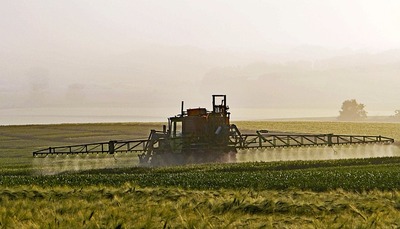State Estimates One or More Pesticides Are Found in Around 43% of 800,000 Private Wells
Wednesday, October 9th, 2024 -- 9:00 AM

(Danielle Kaeding, Wisconsin Public Radio) The state estimates one or more pesticides are found in around 43 percent of 800,000 private wells in Wisconsin, and more than half of the pesticides detected aren’t regulated in groundwater by the state or federal governments.
According to Danielle Kaeding with the Wisconsin Public Radio, the findings stem from an analysis of 380 wells sampled last year as part of a statewide survey to assess pesticides and nitrates in groundwater.
It’s conducted every five to 10 years by the Department of Agriculture, Trade and Consumer Protection, or DATCP. The estimate of wells with pesticides is up slightly from 41.7 percent since the last survey in 2016.
Results released this year show detections of 29 individual pesticides out of 107 compounds tested that include chemicals known as neonicotinoids, which are insecticides known to be toxic to bees and birds.
The findings revealed only one well exceeded health advisory levels recommended by the state Department of Health Services, or DHS, for any of the compounds tested. Even so, Carla Romano, a groundwater specialist with DATCP, said state officials couldn’t assess health concerns for some of the pesticides.
“DHS has conducted reviews of studies available for some of these pesticides, and unfortunately cannot assess a threshold or a health benchmark because of the lack of studies on some of these chemicals,” Romano said.
The most frequently detected compounds in private wells were breakdown products of herbicides metolachlor and alachlor, as well as atrazine. They’re commonly used on corn and/or soybeans, and none exceeded groundwater limits for those pesticides.
Of the 29 compounds detected, Romano said 13 have established groundwater standards. Nine pesticide compounds lacked any groundwater limits or health advisory levels. Seven only have health advisory levels.
Feel free to contact us with questions and/or comments.




